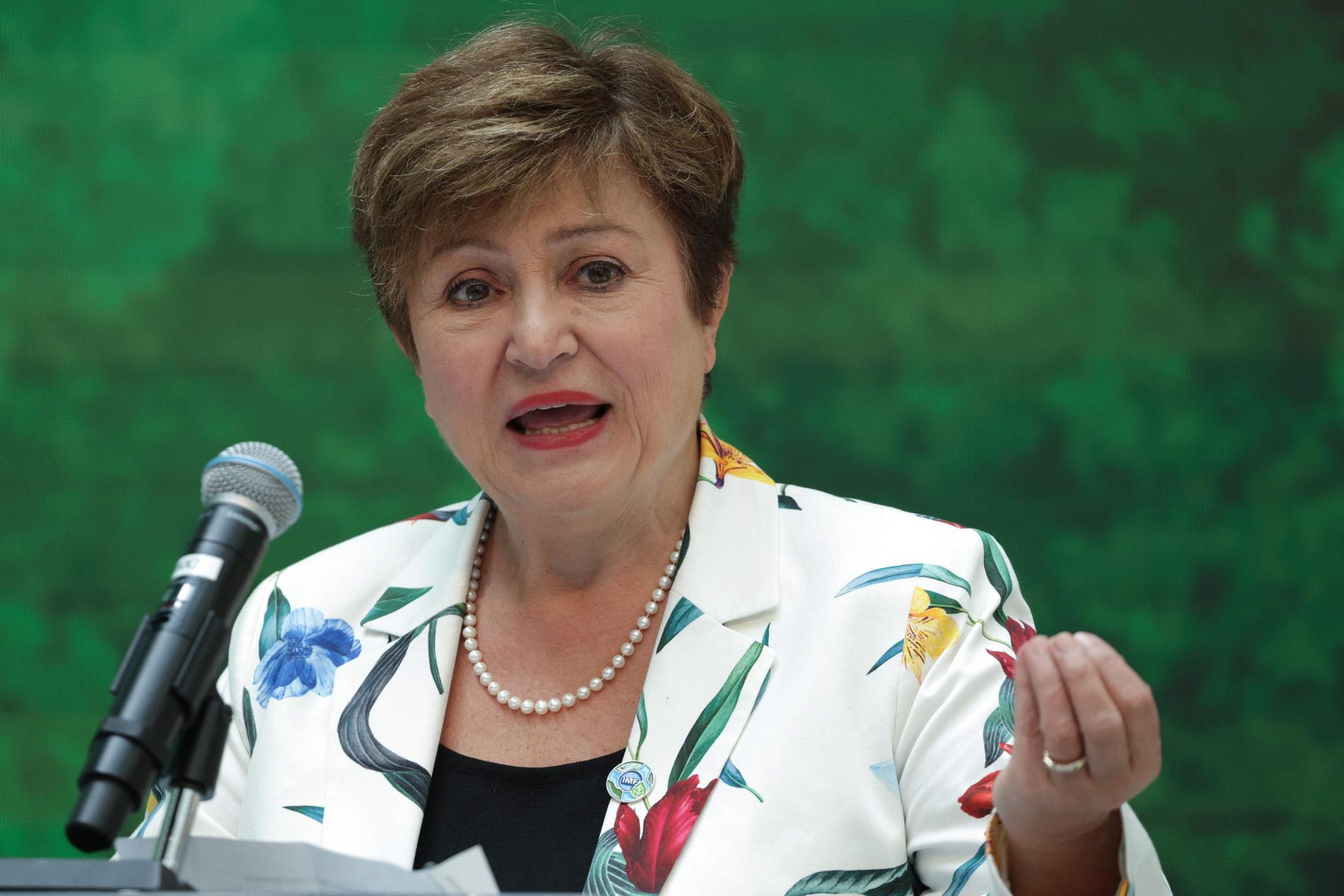The International Monetary Fund believes that most things point to a soft landing for the global economy, but it comes with a clear warning.

Despite the bleak outlook, the global economy remains remarkably resilient, with steady growth and inflation declining almost as quickly as they are rising, the International Monetary Fund said in its semi-annual World Economic Outlook.
The International Monetary Fund estimates that global economic growth, which it estimated at 3.2% in 2023, will continue at the same pace in 2024 and 2025.
The forecast for 2024 was revised up by 0.3 percentage points from the forecast for October last year. Most indicators still point to a soft landing, the IMF wrote.
Read on E24+
The Red Sea can also change interest rate plans
The IMF also estimates that the economic “scarring” from the crises of the past four years has been smaller, although estimates vary between countries.
The IMF estimates that there will be greater problems for low-income countries, many of which are still struggling to reverse the trend caused by the pandemic and cost of living crises.
He warns of possible price increases
The International Monetary Fund notes that resilient economic growth and rapid decline in inflation indicate positive developments in the supply situation. This includes the fact that the energy price shock is abating, as well as an increase in the labor force supported by strong immigration in many industrialized countries.
Despite this welcome development, many challenges remain, and decisive action is necessary, they write in the report.
The IMF expects global headline inflation to fall from an annual average of 6.8 percent in 2023 to 5.9 percent in 2024. It then expects price inflation to slow to 4.5 percent in 2025.
Even if inflation trends are positive, they are still far from target, Bengfunddet writes.
– The report says that restoring inflation to the target level must remain the priority.
At the same time, the IMF wrote that it was somewhat worrying that the decline in inflation had remained somewhat stagnant since the new year.
This may be a temporary setback, but there is reason to be vigilant.
It requires an accommodating monetary policy
The International Monetary Fund confirms that differences in inflation levels between countries demonstrate the need for an accommodating monetary policy.
The strong development witnessed by the United States in recent years reflects strong productivity and employment growth, but it also reflects strong demand in a still overheated economy. This requires a cautious and gradual approach to Fed easing, they wrote.
For the euro area, the IMF expects a recovery from very low levels, but this growth will be diminished by tight monetary policy. Continued high wage growth and continued service inflation may delay inflation's return to target, they wrote.
The Chinese economy is still suffering from a slowdown in the real estate sector.
Credit waves never come quickly, and this is no exception. The IMF wrote in the report that domestic demand will remain weak unless strong measures address the causes.
-More must be done quickly
The IMF believes that politicians should prioritize measures that can maintain or improve the resilience of the global economy.
Now that the global economy is approaching a soft landing, the priority of central banks in the short term is to ensure that inflation falls quietly, by not easing monetary policy too early or waiting too long and causing inflation targets to be missed.
The report also notes that AI offers hope for increased productivity, but there is great potential for serious disruptions in labor and financial markets.
The IMF also writes that the green transition requires significant investments.
Reducing emissions is compatible with growth. Although the activity has become less emissions-intensive in recent decades, emissions are still rising, the Fund writes. In order to further reduce emissions, the International Monetary Fund says huge investments in green technology are needed, especially in emerging economies and developing countries.
– They say more needs to be done quickly.
Read also
Crisis scenario: – The global economy will be paralyzed
Read on E24+
Investors in the country cannot ignore this
Read also
– It could be a death spiral for the Norwegian Krone

“Organizer. Social media geek. General communicator. Bacon scholar. Proud pop culture trailblazer.”
